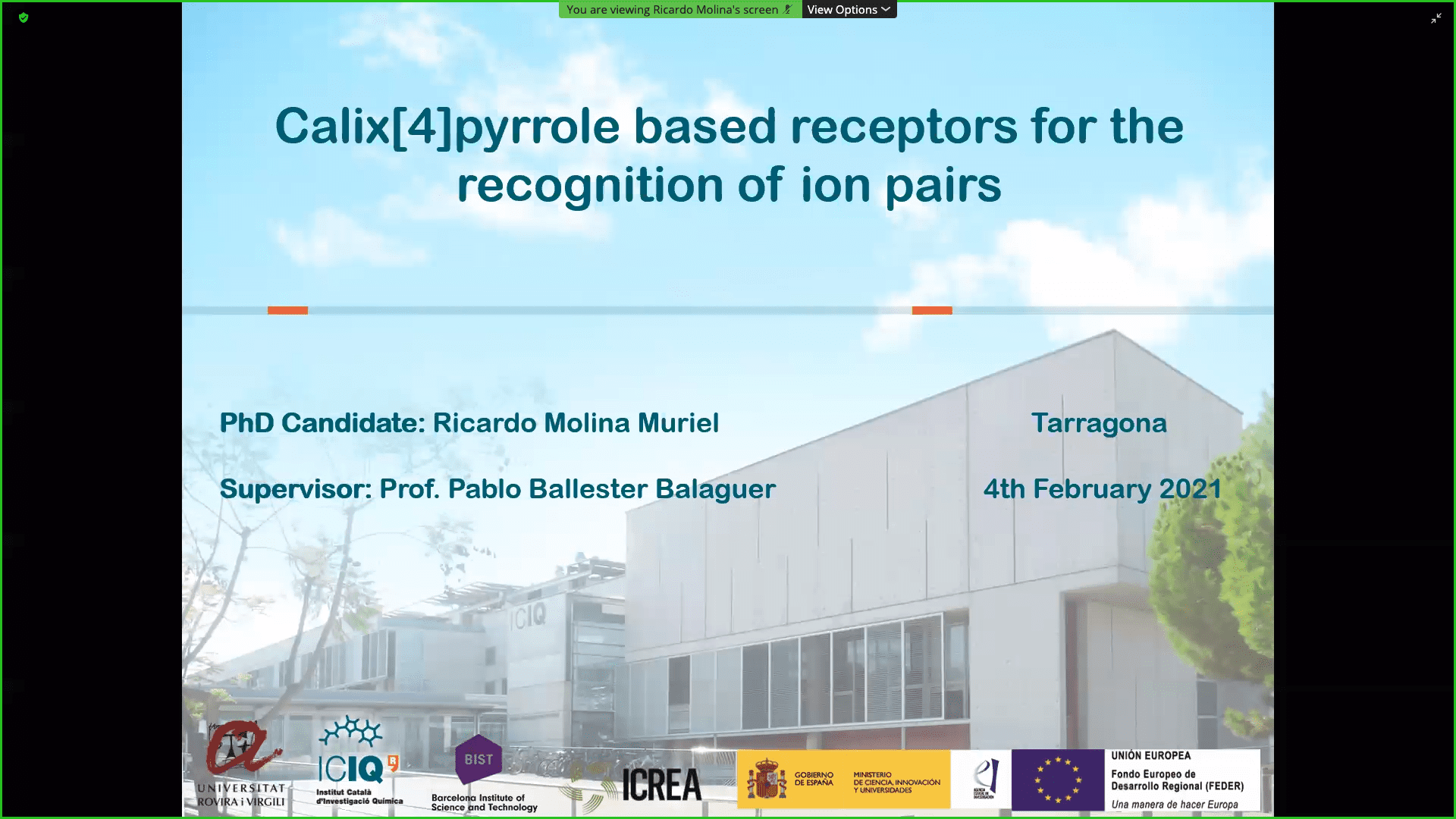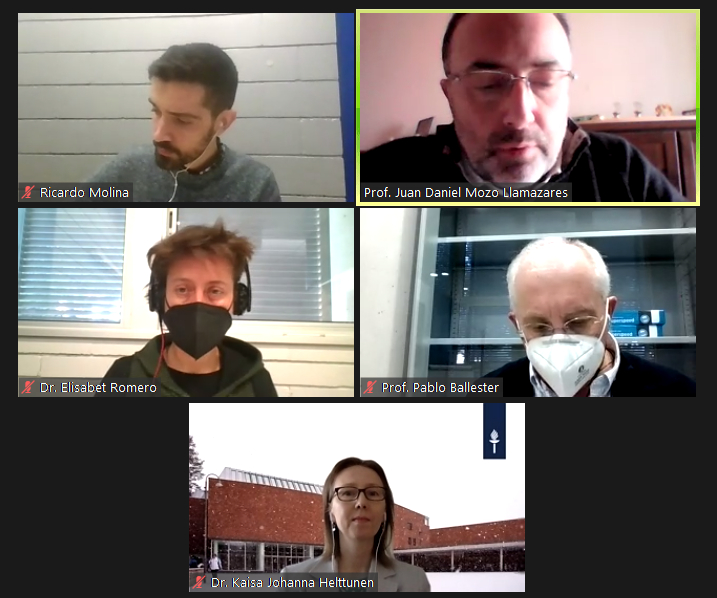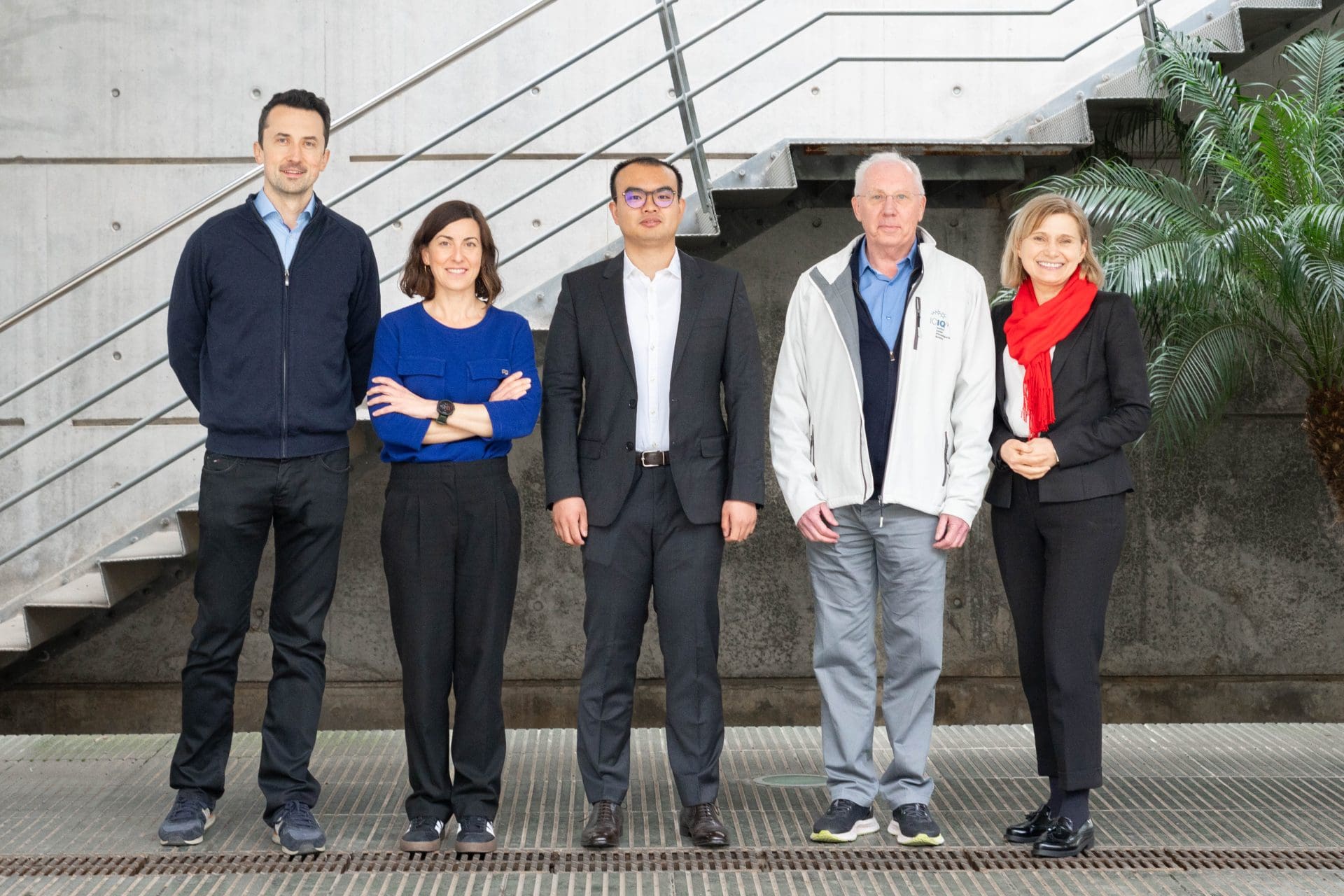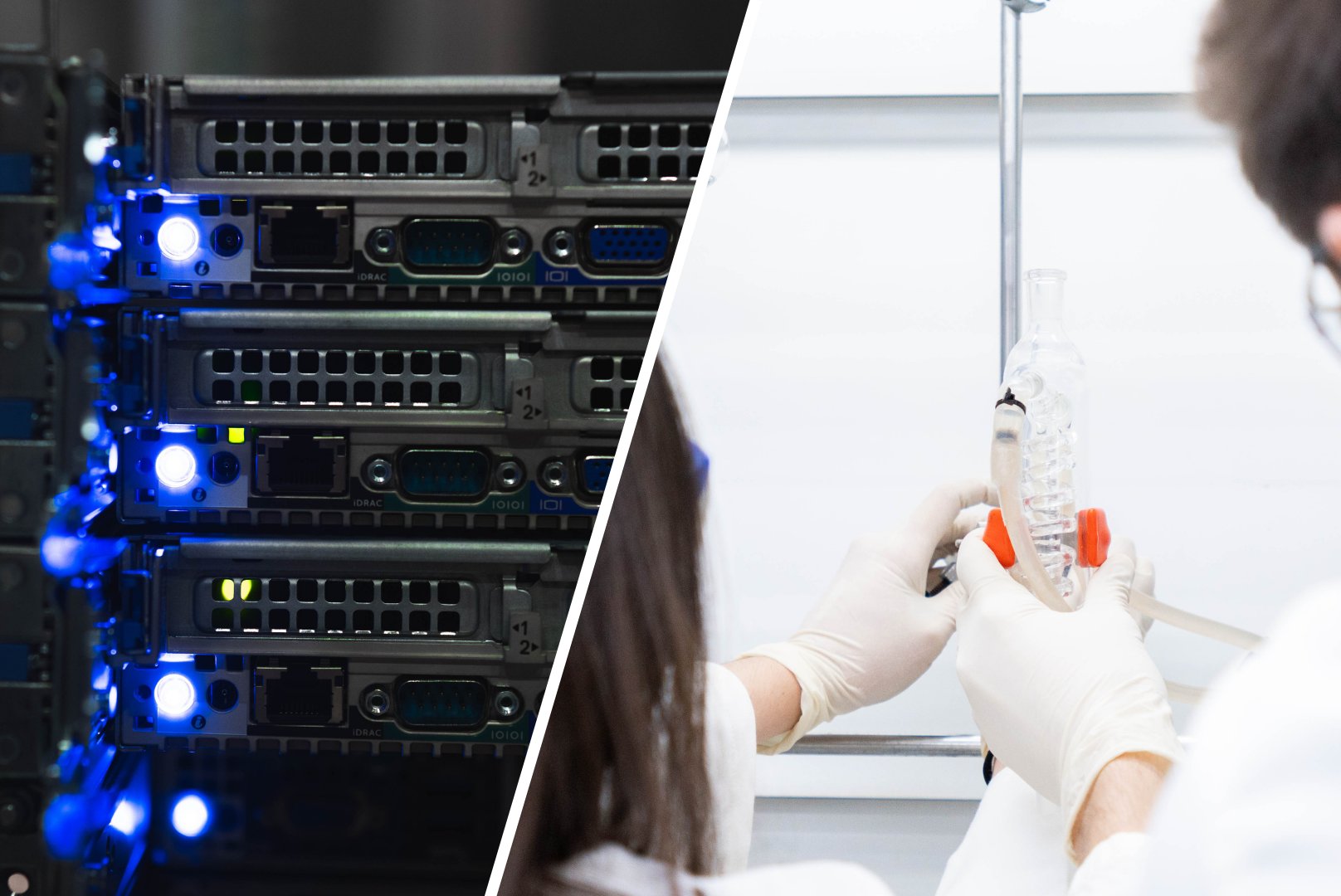Kudos to Dr. Ricardo Molina, ICIQ’s newest Doctor!
4th February 2021 – Ricardo Molina, PhD student under the supervision of Prof. Pau Ballester (ICIQ), has defended his PhD thesis entitled “Calix[4]pyrrole Based Receptors for the Recognition of Ion Pairs” (assigned to the Analytical and Organic Chemistry Department of the Universitat Rovira i Virgili) publicly on February 4th.
The members of the evaluation committee were: Prof. Juan Daniel Mozo (Universidad de Huelva), Dr. Elisabet Romero (ICIQ), and Dr. Kaisa Johanna Helttunen (Jyväskylä University).
Dr. Molina is from Huelva, Spain. He studied Chemistry at the Universidad de Huelva and in his last year he obtained a collaboration grant to work with Uwe Pischel’s group in the same university; there he had his first contact with supramolecular chemistry. Then he did the master’s degree in Synthesis, Catalysis and Molecular Design of URV/ICIQ under the supervision of Prof. Kilian Muñiz. Thanks to an FPI grant he began his PhD in the Ballester group. He likes reading, playing videogames, doing puzzles and nature. If he hadn’t studied chemistry, he would have liked to work in the history field.
Why did you become a scientist?
I have always been a very curious person interested in how things work and what are they made of. My parents always tell the story of how when I was a child, they bought me an amazing automated robot that I ended tearing apart “to see how it worked.” In high school, I was interested in subjects like science and history, I guess they were the ones that answered “how” and “why” questions. Ultimately, becoming a scientist has been a way of better understating my surroundings!
From the lessons learnt at ICIQ, which one do you value the most?
The weekly group meetings were immensely helpful to develop my ability to defend my work. They really helped me in building my confidence to give public scientific talks and in learning how to prepare good presentations. Besides, we used to do joint group meetings between the Ballester and Galán-Mascarós groups that were particularly useful for the same reason. During these meetings, I learnt how to give presentations to an audience with no experience in my research area.
What ICIQ moment you´ll never forget? What will you miss the most from ICIQ?
If I had to choose one unforgettable situation, that would be the night when almost the entire group decided to go to the Waikiki beach near Tarragona. We had no idea how to reach the place, so we decided to walk along the cliffs to access this little hidden beach. Suddenly it was dark and cold; we could only hear the waves breaking on the rocks below. We had to use flashlights to watch our steps to not fall into the ocean! When we reached the beach, we had a good laugh, but it could have ended in a very serious accident! Good times…
I will miss the coffee breaks with my colleagues, where we had the opportunity to disconnect shortly from the hard work in the lab and notice that not everything was so bad after all!
What advice do you have for someone who’s starting their PhD now?
It’s important to have a good balance between experimental work, data analysis and reading literature. Even more important is finding the balance between your Ph.D. and your personal life. You will perform better if you can disconnect from the laboratory and are well-rested.
Where are you going next?
For the moment, I will stay in Tarragona looking for my next position. I would like to work in the editorial and publishing field.
If you were a piece of lab equipment, what would you be?
I would like to be a microcalorimeter. I had a love-hate relationship with this instrument during my Ph.D., with long fights to get some decent results, even to the point of having nightmares about it! It would be interesting to see it now from the other side.
Related news

Let's create a brighter future
Join our team to work with renowned researchers, tackle groundbreaking
projects and contribute to meaningful scientific advancements








 20-02-2025
20-02-2025 



















